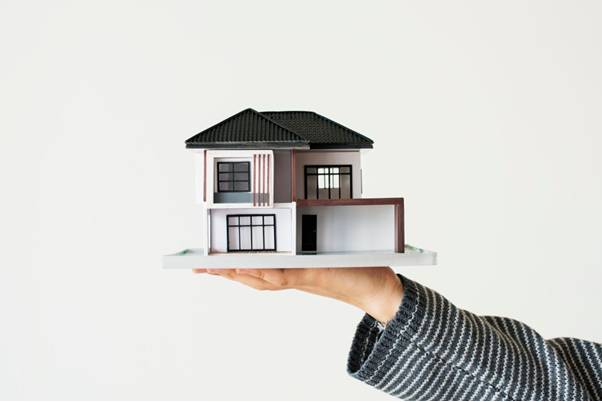
If you're thinking of selling a house in Spain, there are several taxes and costs that you have to keep in mind. The taxes and fees you pay when selling a house in Spain vary and there isn't really a selling property in Spain calculator that automatically calculates this, as it depends on various factors. However, in this article we provide you with all the information so that you can easily add up all the costs and taxes associated with selling a house in Spain in 2023.
The most common is that the expenses represent between 5% and 15% of the final sale price, although they may vary depending on the autonomous community where the property is located and the seller's own situation. For example, if you are over 65 years of age or if you reinvest all the money obtained from the sale in the purchase of a house for your first residence, you will be exempt from paying personal income tax (known in Spain as IRPF).
What fees do you pay when selling a house in Spain?
It is necessary to get your hands on a range of different documents to carry out the sale of a property in Spain, procedures that entail some costs that must be paid in order to make the operation effective:
Energy performance certificate
Since 1st June 2013, it has been compulsory to have an energy performance certificate for the property you want to sell. This document indicates the energy consumption of the property, accrediting its level of energy efficiency.
To obtain it, a qualified technician is required to measure the values of the house. The approximate average price of an energy efficiency certificate in 2023 ranges from 60 to 130 euros. What affects the cost of this document is size of the property: the larger the surface area, the higher the cost.
In order to get an energy certificate in Spain, you can count on the help of idealista. Click here and fill in the form with the details of your home and we will contact you to manage the next steps. You will have the energy certificate emailed to you in a short time.
Habitability certificate
In some Spanish autonomous communities it is compulsory to have a certificate of habitability in order to sell a property. This document is known as a "Cédula de habitabilidad" in Spain and certifies that the property complies with the minimum safety and habitability requirements.
In order to obtain this document, it is also necessary to get the help of a qualified technician. The cost varies depending on the professional, the property and the fees charged by each local council. In 2023, the average cost is between 60 and 160 euros.
Nota simple
When selling a property in Spain, it is always advisable to request a document that is known as the "nota simple" of the house. This document can be requested by both the buyer and the seller, as it is used to find out if the property is free of encumbrances, if it has a mortgage, etc.
The easiest way to do this is through the web portal of the Association of Registrars, and costs 9.20 euros. The cost of obtaining the nota simple in person at the Land Registry is 3.64 euros.
Mortgage cancellation costs
This cost must be assumed if the property to be sold has a mortgage. It is not possible to sell a property with encumbrances, so this procedure must be carried out beforehand.
The cost of cancelling the mortgage will depend on how and with whom it is done. The cheapest way is to do it yourself (around 400 euros), while an independent agency will charge around 480 euros; and a bank or buyer's agency will involve a payment of slightly more than 1,000 euros.
Expenses for the sale of a property in Spain in 2023
Once a buyer has been found, a series of expenses must be faced in order to close the sale. In 2023, there are three particular expenses to keep in mind:
Deposit contract
This document, known as a "contrato de arras" in Spain, is not compulsory, but it is highly recommended. The reason is that a deposit contract protects both the seller and the buyer in the event that one of the two parties backs out when signing the purchase contract.
This document contains all the conditions agreed between both parties during the negotiation, such as the final sale price, the deadline for signing, the distribution of expenses, penalties for breach of contract, etc...
The cost of a deposit contract in Spain varies depending on who is in charge of drafting it. It can be obtained free of charge, by drawing up the contract yourself; if a real estate agency does it, the cost will be included in their sales commission; and if a lawyer does it, the final price can be around 100 euros.
Notary fees
This corresponds to the costs of the public deed, including the notary's fees. They are usually paid in full by the buyer, although the Civil Code establishes that it is the seller who must bear the costs of the public deed of sale; and the buyer those corresponding to the first and successive copies.
The final value of the notary fees varies according to the price of the property. Notaries' fees, known as tariffs, are regulated by the state and all notaries charge the same for the same services. In the case of the execution of the public deed of sale, prices are between 600 and 875 euros, depending on the price of the property.
Real estate commission
If you have chosen an estate agent to handle the sale of your home in Spain, you will have to pay the corresponding fees. These will depend entirely on the market (type of property, geographical area, etc.) and the price of the property. Generally, real estate agencies charge a previously established percentage of the final sale price of the property.

What taxes do you pay when you sell property in Spain?
There are also several taxes involved in the sale of a property in Spain. There are some exceptions but the most common taxes to be paid are the following:
IRPF income tax
When a property is sold, income tax (IRPF) must be paid on the capital gain obtained with the sale, so it is only payable in the event that it has been sold for a higher price than what was paid at the time of purchase and when a capital gain has been obtained. The income obtained is presented in the income tax return of the year following the sale of the property.
This is calculated by taking into account the price at which the house was sold, the price at which it was purchased and the expenses incurred in carrying out these operations.
Depending on the profits obtained, the amount will be taxed in the IRPF brackets set by the Inland Revenue, which for 2023 are:
- Profits up to 6,000 euros: 19%.
- Profits between 6,000 and 50,000 euros: 21%.
- Profits between 50,000 euros and 200,000 euros: 23%.
- Profits between 200.000 euros and 300.000 euros: 27%.
- Profits over 300,000 euros: 28%.
These percentages are applied progressively. For example, the first 6,000 euros of profit must be taxed at 19%; from 6,000 euros up to 50,000 euros, 21%. And so on.
However, there are some exceptions to avoid paying personal income tax when selling property in Spain:
- Being over 65 and having sold your main residence or taking out a life annuity if the house sold is a second residence.
- Reinvesting the money from the sale in the purchase of a new property that will be your main residence.
- Dation in payment (dación en pago), i.e. giving the flat in lieu of payment because you are unable to pay the mortgage.
- If you are a person in a situation of severe dependency or great dependency in accordance with the Law for the promotion of personal autonomy and care for people in a situation of dependency
- If the purchase of the property took place between 12/05/2012 and 31/12/2012, in this case you are exempt from 50% of the capital gain obtained.
Municipal capital gains tax
This local tax is payable to the local council where the house is located for the increase in value of the residence from the time of purchase until its sale. It must be paid within 30 days of the sale.
This tax is levied on the increase in the value of the land, not on the purchase price. To calculate the municipal capital gains tax, the cadastral value of the land, the number of years of ownership of the property, and the coefficient or percentage established by the local council must be taken into account.
It should be noted that if a flat or house is sold at a lower price than its acquisition value, no capital gains tax is payable.
Real Estate Property Tax (IBI)
This tax is paid annually and is the responsibility of each municipality, so the price will vary depending on the location of the property. However, IBI costs are limited to a minimum of 0.4% and a maximum of 1.3% of the cadastral value of the property.
It must be paid by whoever appears as the owner of the property on 1st January. The date of payment depends on the location of the property.
What taxes are involved in the sale of a property in Spain for non-residents?
In 2023, the Treasury in Spain obliges the buyer to withhold 3% of the purchase price at the time of the public deed and pay it on behalf of the seller into the coffers of the Public Treasury as income tax for non-residents.